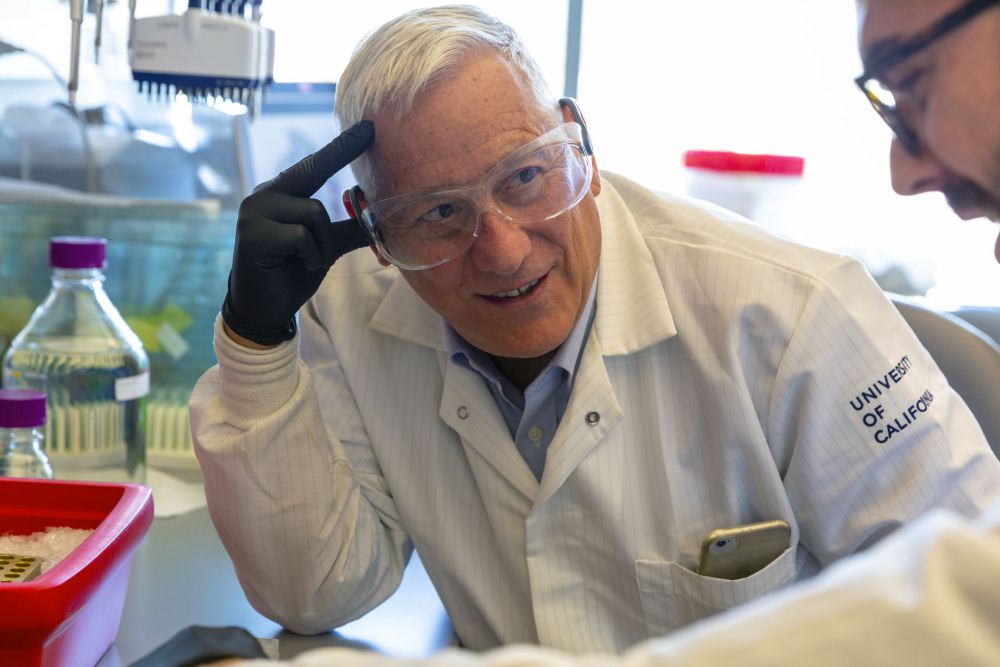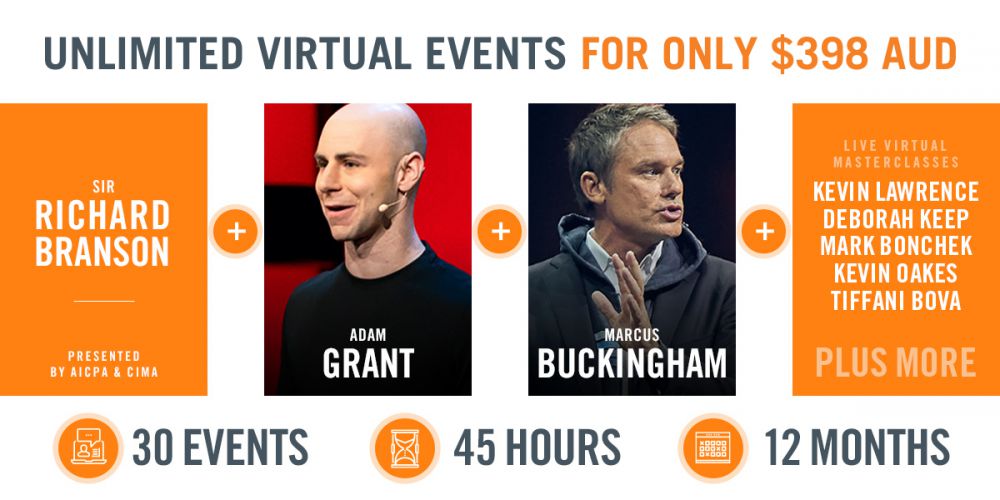Norman Swan's guest interview on Isaacson's latest book The Code Breaker

World-famous biographer Walter Isaacson is remembering Steve Jobs.
Talking to Dr Norman Swan for The Growth Faculty book club, Isaacson is comparing Jobs’s leadership style to that of his latest subject, famous biochemist and Nobel laureate Jennifer Doudna.
“I asked him ‘What is your greatest product?’ I was expecting him to say ‘the iPhone’.”
But Jobs surprised him.
"He said, 'You know, making a product is hard but making a team that can continually make products is even harder. The product I’m most proud of is the team I built at Apple’."
The code breaker Jennifer Doudna
Jennifer Doudna's story is a current example of leading a high-performing team.
The Code Breaker – Jennifer Doudna, Gene Editing, and The Future of the Human Race follows her starring role in the future-altering CRISPR technology.
Isaacson’s famously written bestsellers on Steve Jobs, Einstein, and Leonardo da Vinci.
While Jobs told Isaacson he liked:
· Creative tension in his teams.
· Team members always shouting and provoking each other.
Jennifer Doudna, in contrast, prefers her teams to be:
· Collegial.
· Based on trust.
Neither was prey to behaviours that destroy teams, but both leaders did push their people to be self-starters, to be their best.
“There are multiple ways to form a team, and in Jennifer’s team – she allowed them to bond and trust one another,” he tells The Growth Faculty.
A story of collaboration and ambition
The Code Breaker is a compelling story of collaboration, innovation, and ambition.
In 2011 Jennifer runs into French microbiologist Emmanuelle Charpentier at a conference. They realise the potential of a bit of genetic code called CRISPR, and its partner enzyme Cas9, to cut nearly any gene of their choosing.
Together they write the now famous 2012 paper.
A tool to change the human race
CRISPR is a tool that can literally change the human race, and Walter Isaacson became fascinated.
“Molecules will be the new microchip and [CRISPR] will be more significant than the digital revolution we’ve just been through,” he says in our interview.
Timeline for discovery
While new discoveries are being made every month, Isaacson gave Norman Swan his best guess for a CRISPR technology timeline:
Within 5 years:
· Use of CRISPR on horrible genetic diseases like Muscular Dystrophy, Huntingtons, Sickle cell…simple genetic mutations.
· CRISPR home detection kits (like a pregnancy tests) that could test for coronavirus as well as dengue, strep throat, ebola, even cancer. Scientists could put apps on it (like phone apps).
· CRISPR used for more complex presentations like blindness, stunted growth, deteriorating muscle mass.
Within 5-10 years:
· A possible CRISPR solution for Alzheimer’s.
After 10 years:
· More problematic areas when we start to talk about editing our children for greater muscle mass etc.
· Finally, using CRISPR to fight cancer, which is not one disease but thousands of diseases. CRISPR could re-engineer the immune system and keep the cancers from fighting back. Australia’s Gavin Knott, a research fellow with Monash University, is at the forefront of this.
Ethics of editing inheritable genes
Isaacson says there is agreement CRISPR should not be used for human germline editing. These are genome edits that can pass down to other generations.
While it’s currently not banned, there’s “general agreement” on using the technology in cells of living patients, not in their reproductive cells.
IP and the CRISPR wars
Another point of contention is Intellectual Property, with many discoveries, including Jennifer’s own, locked in patent battles.
Walter Isaacson calls them “The CRISPR wars.”
It reminds him of the invention of the integrated circuit (IC) chip in the 1960s, when the patent war started by Texas Instruments was settled by shaking hands and cross-licencing (to this day there is no consensus on who invented the IC).
“I wish the people in CRISPR would shake hands and cross licence,” he says.
“[The scientific community has] become too competitive, it’s been driven by patents, grants, priority of publication; that makes it tough to share,” he says. “But that got changed by the Coronavirus. We started to fight Covid. That was a useful reminder that science had become too worried about IP.”
Bio-hacking and DIY CRISPR kits
Still, he argues that competition is what sometimes spurs us to ‘go faster and work longer’.
Also making the scientists go faster is the scourge of bio-hackers, most famously Dr Josiah Zayner who sells DIY CRISPR kits through his company The ODIN.
“If we’re going to contain this, we have to acknowledge these biohackers,” Isaacson tells Norman Swan. “The computer revolution, it was hackers who took computers into their own hands – think of the Homebrew Computer Club. The human race is pushed forward not only by the establishment but by the hackers…I think there’s a problem with it, but maybe we should be thankful for them for provoking us to go a bit faster.”
The Nobel prize - yawn!
In 2020 Jennifer Doudna and Emmanuelle Charpentier were jointly awarded the Nobel Prize for Chemistry “for the development of a method for genome editing.”
Walter Isaacson set his alarm for 4 a.m. and cheered as he watched the announcement.
And the prizewinner Jennifer Doudna?
She slept right through it.
“She is down to earth person. She can wear her awards like a normal person. She’s not letting it affect her life,” smiles Isaacson.
If you'd like to increase your professional development in 2021 why not consider becoming a member of The Growth Faculty? One membership, unlimited access to 30 live virtual Time For Transformation masterclasses and the best live virtual events - PLUS year-round leadership content On Demand with videos, podcasts and book summaries. Join a community of knowledge seekers who are inspired by the best. Access $4350+ value for just $398 AUD. See who's up next.


 Australia
Australia
 European Union
European Union
 New Zealand
New Zealand
 United Kingdom
United Kingdom
 United States
United States
 Singapore
Singapore

